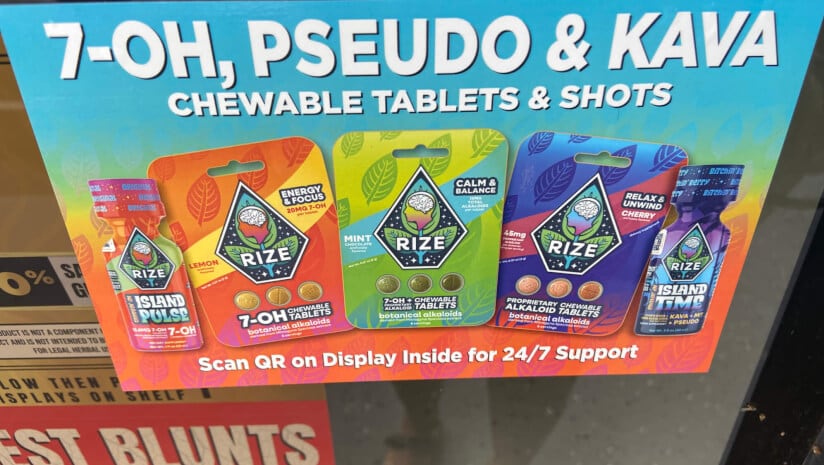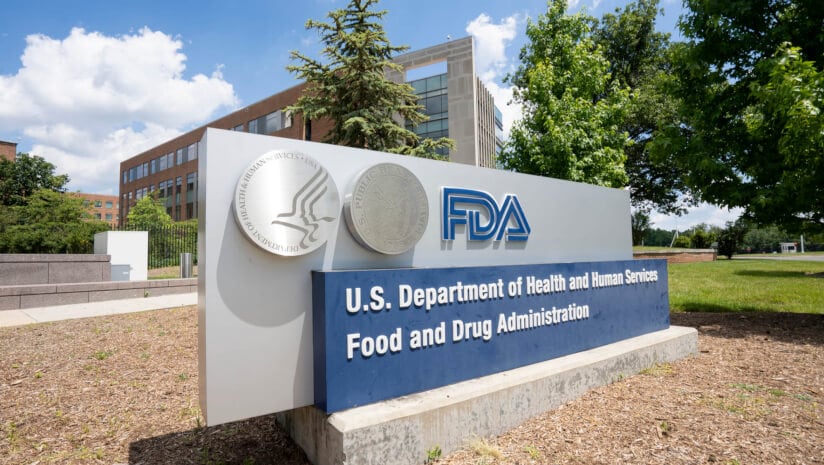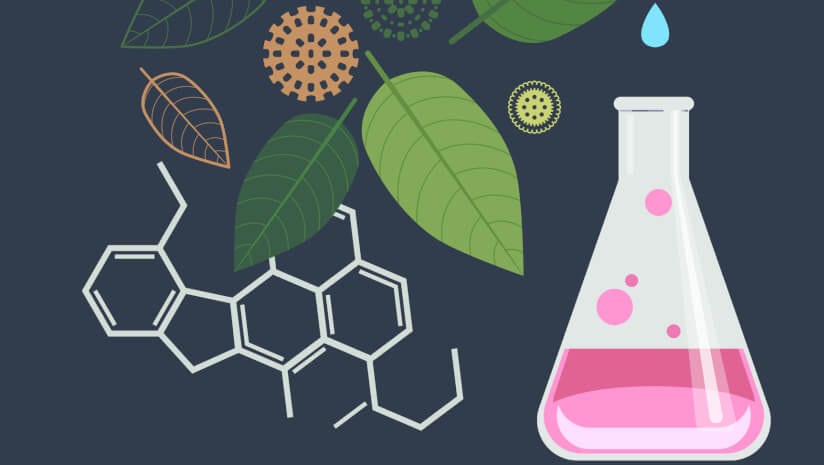“Due to the danger posed to the public, Florida is taking 7-OH off the shelves immediately,” James Uthmeier, Florida’s new attorney general, shared in a statement. “This dangerous substance is being marketed to teens and young adults and has a high potential for abuse and death.”
This move comes after the U.S. Food and Drug Administration said in July that it would recommend a scheduling action to control certain 7-OH products under the Controlled Substances Act (CSA).
The Drug Enforcement Administration (DEA) is reviewing the FDA’s recommendation and has the final authority on scheduling, which requires a rulemaking process that includes a period for the public to provide comments before any scheduling action is finalized.
7-OH is present in naturally low amounts, often less than 0.05% of the leaves of the kratom plant, Mitragyna speciosa, which is native to Southeast Asia. As it is present in such low amounts, it is not economically feasible to extract 7-OH from the leaf. Instead, other alkaloids from kratom are isolated and then chemically synthesized into 7-OH, resulting in a man-made product that has significantly higher concentration than found in raw leaves. It is reported to be 13 times more potent than morphine. 7-OH products are sold as extracts, shots, powders or capsules in places like gas stations, convenience stores and smoke shops across the United States.
The Florida Attorney General’s office said that there has been a recent increase in emergency room visits and adverse health incidents linked to kratom. The Florida Department of Health did not respond to a NutraIngredients’ request on Friday to clarify if these incidents were attributed to kratom (derived from the kratom leaf) or concentrated, synthetic 7-OH.
According to market research by the Marwood Group, one million people now use 7-OH products each month. The same report states that 500 million doses of 7-OH have been sold in the U.S. Synthetic, concentrated 7-OH has only been on the market for two years. The report was commissioned by the Holistic Alternative Recovery Trust (HART), a 7-OH advocacy organization.
“[Florida’s] decision ignores the science,” said Jeff Smith, national policy director for HART. “According to the FDA’s database, there are zero confirmed deaths linked to 7-OH alone and just eight adverse events ever reported, even with over half a billion adult uses. If 7-OH were truly the threat being claimed, the data would show it. It doesn’t.”
According to the FDA, 7-OH in novel potent opioid products can result in serious harm, and the agency said it has received reports of effects including addiction, anxiety, depression, gastrointestinal distress, insomnia, seizures and withdrawal symptoms. The agency said that many consumers use these products to self-medicate their anxiety, mood disorders, pain and withdrawal from other opioids.
Florida not alone
Beyond Florida, several states have banned 7-OH products, including Louisiana. As of Aug. 1, the state prohibits the sale of both kratom and 7-OH. Possession of less than 20 grams would lead to a $100 fine while anything over 20 grams could carry six months of jail time or a $1,000 fine. Distributing kratom in Louisiana could result in one to five years in prison or fines up to $50,000.
The across-the-board, the banning of both kratom and 7-OH by Louisiana is a concern for Mac Haddow, senior fellow on public policy for the American Kratom Association. Differentiating between synthetic, concentrated 7-OH and kratom is important for lawmakers to understand, he said.
“We’re working now with the governor’s office and with the legislatures to revise that policy for the next session coming up, because it needs to be,” Haddow said. “Louisiana has a full ban on all kratom products whereas other states put a more appropriate limit on the amount of 7-OH in a kratom product to 2% of the product.”
He added that limiting the amount of 7-OH in a product protects kratom while still prohibiting the sale of concentrated, synthetic 7-OH. He said this was necessary as manufacturers of the synthetic product find workarounds to 7-OH limits by percentage imposed by states.
“It really should be no greater than one milligram per serving and no more than 3 mg in a package of 7-OH,” Haddow said. “Then you eliminate any of the nonsense where manufacturers play with the weight by expanding the product size, adding material to give the product increased weight to reduce the percentage of 7-OH. Just one milligram per serving and no more than 3 mg per package of 7-OH gets into the safe level and doesn’t allow the synthetics into the market.”
The American Kratom Association encourages states to follow Florida’s lead.
“Every state has some ability to do emergency scheduling through a variety of different agencies depending on the state,” Haddow added. “We’ve already reached out to all 50 attorneys general encouraging them to take action against 7-OH.”
Still being sold
Attorneys said they view the Florida ban as a necessary stopgap measure as the DEA is set to conduct a comment period that could potentially take months to complete before 7-OH scheduling action is made.
“I’m sure more states will jump on board,” said Bob Durkin, partner and co-chair of the regulatory group at Amin Wasserman Gurnani. “Is this wise for states to have individual policies regarding 7-OH? If not, what should they do? Should they just sit back and wait until the DEA makes an announcement?”
In that time, states could witness increased sales of 7-OH as manufacturers unload product, he added.
“The FDA seems like it’s sitting on its hands and waiting for the DEA to take care of the problem rather than going out and seizing 7-OH,” Durkin said. “States that have the ability to quickly emergency schedule 7-OH are doing it. They’re protecting their consumers where the FDA is waiting for DEA to protect consumers.”
Rick Collins, founding partner at Collins Gann McCloskey & Barry, said consumers will try to stockpile as much product as possible.
“They will be in knowing possession of a controlled substance and subject to arrest by DEA,” he said. “When states follow suit to conform their drug laws to the new federal model, which they will after 7-OH becomes a controlled substance under federal law, personal use possessors will be subject to arrest by state and local cops as well. That’s the difference between laws that ban sales and those that [enact] controlled-substance status. The end users become criminals.”
Florida’s classification of concentrated 7-OH as a Schedule 1 controlled substance has not deterred smoke shops from continuing to sell it. As of Sunday, one shop owner in Tampa, Florida, who spoke to NutraIngredients off-the-record, continued to display 7-OH brands including 7Tabz. He said he received an email from the Florida Department of Agriculture instructing him he was no longer permitted to sell synthetic 7-OH products. He added that he was uncertain “which brands we should sell and which we should not.”
Other smoke shops took 7-OH products off their shelves prior to Florida’s ban. An employee of Ali Baba, another Tampa-based smoke shop, said her employer removed the brands about two weeks ago.
Rhylee Svenson, an employee of kava and kratom bar Noble Brew, said she previously worked at smoke shops before getting turned on to “pure” kratom. She said Florida has one of the largest 7-OH markets in the country. The state’s ban will push synthetic 7-OH users into the kratom and kava spaces, she added.
“It’s going to help our business, if anything,” Svenson said. “People are coming in here knowing how harmful and addictive 7-OH is.”



